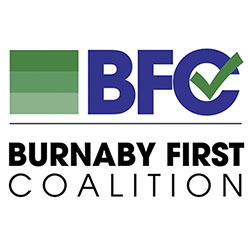Elections at the Burnaby Citizens Association-dominated school board didn’t run as smoothly as usual Monday night.
Every year, the board is required by provincial legislation to elect (or re-elect) a chair, vice-chair, and representatives to the B.C. School Trustees Association (BCSTA) and B.C. Public School Employers Association (BCPSEA).
For years, only one candidate has been nominated for each position, and the annual event is usually a brisk, well-oiled procedure for the Burnaby board, which has been made up entirely of BCA members for eight years.
This time, however, second-term trustee Meiling Chia threw her colleagues a curve.
Trustee Larry Hayes had nominated chair Ron Burton to serve another term in the top spot, but Chia then nominated trustee Gary Wong.
Wong appeared to be taken aback and declined the nomination, and Burton was acclaimed chair for a third consecutive one-year term.
Chia then asked the new chair leave to comment on the election.
“As long as it’s nothing personal,” Burton said.
In her comment, Chia made reference to an “unofficial agreement” and “transparency to the public” in relation to the election, but Burton quickly kyboshed any explanation.
“That agreement is not a part of the public board,” he said. “That’s within the summer caucus, so I’m going to rule you out of order and move on.”
Chia later told the NOW she had planned to voice frustration at the way the election had been conducted.
For the five years Chia has been a trustee, she said BCA trustees have met privately before the December elections and predetermined who would be elected to each position.
In her second year, Chia said it was explained to her there was a kind of unofficial agreement that trustees would be elected to the chair and vice-chair positions for two consecutive years, and the vice-chair would then rotate into the chair’s position.
“Ron mentioned that it’s a healthy rotation to offer the new people who are interested to be taking the next step,” Chia said. “He said we just want to give new trustees a good opportunity to step in if they have the passion or interest to explore the position, which is a good reason – a rotation, not people stay in the chair for four years.”
At a private meeting Sunday, however, the same trustees who had argued to keep the two-year term rotation four years ago chose to ignore it, Chia said.
So, on Monday, Burton was acclaimed to serve a third consecutive year as chair, and outgoing vice-chair Harman Pandher was replaced by trustee Baljinder Narang instead of being rotated into the top spot.
With municipal elections now less than two years away, Chia suggested some trustees are flouting the precedent because of political aspirations and infighting among board members.
“This has to be public,” Chia said. “To me, that’s too selfish. How can you be a trustee if you only make a decision for your own benefit?”
Burton, however, said he has “no future aspirations.”
He said the reason Pandher was passed over was because the board is getting ready to engage the provincial government on a number of important issues involving the B.C. Teachers’ Federation and the courts, and Pandher is a Surrey public school teacher.
“There was a feeling that having a teacher at the front of it would be a bit of a conflict,” Burton said. “It had nothing to do with his performance or anything like that. It was just, we didn’t want the board to be in conflict. During negotiations, (Pandher) was doing a lot of tweeting and that, supporting the teachers, but we kept him out of all meetings to do with the teachers. If he was the chair, that would be virtually impossible.”
Burton acknowledged the decision didn’t go down easy with Pandher, who missed Monday’s public meeting because of laryngitis.
“Harman obviously has some issues with it,” Burton said.
As for Chia’s frustration, Burton said he was sorry for the way she felt.
“She is a new trustee and I don’t think she fully understands the process,” he said.
Burton made no apologies for how the BCA board has conducted the annual elections.
“It’s been a long tradition of operating like this, and I think it’s served the board well over the years,” he said.

